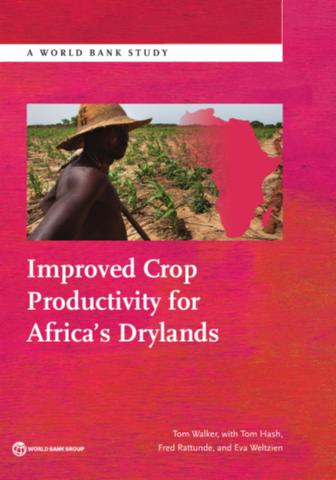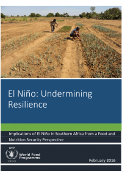
Wake up call
<p>Underscoring yet another reason why an ambitious climate deal must come out of upcoming COP21 talks in Paris, a new United Nations report warns of the "high price" of extreme weather disasters

<p>Underscoring yet another reason why an ambitious climate deal must come out of upcoming COP21 talks in Paris, a new United Nations report warns of the "high price" of extreme weather disasters
A global meeting on water opened in France on Monday with demands to bring clean water and sanitation to billions in need and to address worsening scarcity and waste. "The challenges are huge and the

Choking and pollution of the Great Lakes in Africa has affected breeding of unique fish species
Joins Accord With Riders To Facilitate Talks; China Expected To Follow Suit New Delhi: After three months of confabulation within the government, India on Tuesday allowed a conditional association of its name with the Copenhagen Accord.
Greenhouse gases (GHGs) warm the surface and the atmosphere with significant implications for rainfall, retreat of glaciers and sea ice, sea level, among other factors. About 30 years ago, it was recognized that the increase in tropospheric ozone from air pollution (NOx, CO and others) is an important greenhouse forcing term.
Leading scientists say that agriculture is a ‘poor relation’ in global-warming negotiations.
New research released today by the Environmental Investment Organisation (EIO), a climate change and finance think tank, shows large quantities of emissions are not being accounted for. Public disclosure
<p><img alt="" src="http://www.indiaenvironmentportal.org.in/media/iep/homepage/climate_children.jpg" style="width: 270px; height: 190px; margin: 8px; float: left;" />This new report published by the the
The recent wave of net zero targets has put the Paris Agreement’s 1.5°C within striking distance. In this briefing, the Climate Action Tracker (CAT) has calculated that global warming by 2100 could be
Recent clusters of outbreaks of mosquito-borne diseases (Rift Valley fever and chikungunya) in Africa and parts of the Indian Ocean islands illustrate how interannual climate variability influences the
TWO months away from the year-end UN climate summit in the Mexican resort town of Cancun, countries appear to have given up the idea of a binding climate treaty this year. The focus now is on narrowing down differences and providing the framework for an agreement, perhaps in South Africa next year.
Countries hit by ecological damage and conflict are trapped in a vicious cycle where one problem reinforces the other. And climate change is expected to make things worse. Ecological threats will lead
Global talks to widen a fight against climate change reached gridlock on their final day on Friday after scant progress overnight to encourage rich nations to help Africa. The two weeks of talks of

More than 200 million people living in dryland regions of Sub-Saharan Africa make their living from agriculture. Most are exposed to weather shocks, especially drought, that can decimate their incomes,

This document serves to outline El Niño’s major implications on food and nutrition security in the southern Africa region and highlights immediate and long-term preparedness requirements. Further, it provides
Identifying potentially suitable areas for solar and wind project development can assist countries in reducing assessment costs. This allows the government to conduct more detailed evaluations that account
The World Energy Trilemma Index is an annual measurement of national energy system performances across each of the three trilemma dimensions: Energy Security measures a nation’s capacity to meet current
Limiting global temperature rise to 2°C above pre-industrial levels will require billions of dollars in investments each year to mitigate greenhouse gas emissions and shift to low-emissions development
The discourse on urban vulnerability over the last decade and a half has undergone substantial shifts prompted by differences in disciplinary orientations. This enables multiple framings and causal linkages,
<p>We estimate the potential reductions in methane and carbon dioxide emissions from several livestock and pasture management options in the mixed and rangeland-based production systems in the tropics.